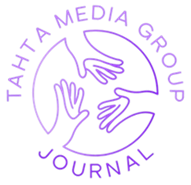Dynamics of Islamic Religious Education in State Junior High Schools
DOI:
https://doi.org/10.55080/jpn.v4i2.200Keywords:
Educational Dynamics, Islamic Education, State SchoolsAbstract
This study was conducted to reveal how the development of a state-based school that still pays attention to Islamic religious education for its students. This study is a field study with data collection techniques through observation through online media, as well as interviews with school officials at SMP Negeri 1 Jetis. While the data analysis technique is an interactive model. The results of the study indicate that in its development SMP Negeri 1 Jetis experienced dynamics in its education system, where these dynamics occurred in various stages including, a) the problem identification stage, namely the principal's anxiety about the importance of Islamic religious education, b) the stage of an alternative problem solver, namely by adding special hours that focus on learning to read and write the Qur'an, c) the stage of choosing a new strategy, namely the full-day school system, d) the implementation stage that takes place and causes changes in an element of education that includes the management of teacher and student recruitment, financing, facilities, infrastructure, and curriculum, and e) the evaluation stage. While the forms of dynamics of SMP Negeri 1 Jetis include two things that include governance and school culture. In terms of governance, it is led by a professional principal whose management is consistently supported by innovative policies. Meanwhile, the school culture is based on a predetermined vision, which then fosters attitudes that are implemented in the daily lives of all members of the school community.
Downloads
References
Ali, A. M., & Halim, F. (2023). The Role of Pesantren and Its Literacy Culture in Strengthening Moderate Islam in Indonesia. Edukasia Islamika, 8(2), 205–226. https://doi.org/10.28918/jei.v8i2.1729
Angit, R., & Witanto, Y. (2024). Analysis of students discipline on the learning process at elementary school. Jurnal Penelitian Pendidikan Indonesia, 10(4). https://doi.org/10.29210/020244379
Chen, Z. (2023). The Influence of School’s Reward Systems on Students’ Development. Journal of Education, Humanities and Social Sciences, 8, 1822–1827. https://doi.org/10.54097/ehss.v8i.4591
Demir, S., & Çobanoğlu, N. (2025). Teacher-school fit, job satisfaction, participation in decision-making, and psychological ownership as predictors of organizational ostracism among primary school teachers. Work (Reading, Mass.), 10519815251341128. https://doi.org/10.1177/10519815251341128
Dewi, C. K., Mukhlis, F., & Muthohirin, N. (2024). Analyzing Educational Prophetic Leadership in Disruption Era in Muhammadiyah Pesantren: Implementation and Relevance. At-Ta’dib, 19(2), 291–311. https://doi.org/10.21111/attadib.v19i2.11964
Fadil, A., & Aryani, I. K. (2021). Improvement of Teacher Pedagogical Competence through In House Training Activities. Dinamika Jurnal Ilmiah Pendidikan Dasar, 13(2), 89–92. https://doi.org/10.30595/dinamika.v13i2.11551
Fauzi, A., Mizzudin, M., Suryapermana, N., & Lestari, A. (2021). Strategic Management Of Muhammadiyah 12 Pamulang Elementary School In Improving Service Quality And Education Graduates. International Journal of Educational Management and Innovation, 2(2), 213–227. https://doi.org/10.12928/ijemi.v2i2.3687
Ikhwan, A. (2021). Metode Penelitian Dasar (Mengenal Model Penelitian dan Sistematikanya). Tulungagung: STAI Muhammadiyah Tulungagung.
Iqbal, M., & Alam, L. (2024). Classroom Cleaning Duty to Cultivate Social Spirit and Responsibility at MTs Negeri 1 Yogyakarta. Journal of Indonesian Progressive Education, 1(2), 61–70. https://doi.org/10.63617/jipe.v1i2.15
Ja’far, H. (2015). Indonesian Islamic Education: Towards Science Development. Walisongo: Jurnal Penelitian Sosial Keagamaan, 23(2). https://doi.org/10.21580/ws.23.2.309
Jabar, J., Suheti, Supardi, & Fauzi, A. (2025). 9 Year Basic Education Policy. Multidisciplinary Indonesian Center Journal (MICJO), 2(2), 2123–2130. https://doi.org/10.62567/micjo.v2i2.771
Javed, A., & Muhammad, N. (2021). Teachers Perceptions about Reward Systems in Classroom. Journal of Education and Social Studies, 2(2), 59–62. https://doi.org/10.52223/jess.20212204
Kosim, M., Muqoddam, F., Mubarok, F., & Laila, N. Q. (2023). The Dynamics Of Islamic Education Policies In Indonesia. Cogent Education, 10(1). https://doi.org/10.1080/2331186X.2023.2172930
Miles, M. B., Huberman, A. M., & Saldaña, J. (2014). Qualitative Data Analysis: A Methods Sourcebook (3rd ed.). New York: SAGE Publications.
Moleong, L. J. (2018). Metode Penelitian Kualitatif. Bandung: PT Remaja Rosdakarya.
Muchtarom. (2013). Islamic Education In The Context Of Indonesia National Education. Jurnal Pendidikan Islam, 28(2). https://doi.org/10.15575/jpi.v28i2.551
Mustari, M. (2013). The Roles of the Institution of Pesantren in the Development of Rural Society: A Study in Kabupaten Tasikmalaya, West Java, Indonesia. International Journal of Nusantara Islam, 1(1). https://doi.org/10.15575/ijni.v1i1.34
Prihantini, & Hasmar, J. (2024). The Impact of School and Parent Collaboration in Curriculum Implementation in Elementary School Education. Jurnal Ilmiah Sekolah Dasar, 8(3), 510–521. https://doi.org/10.23887/jisd.v8i3.69770
Putri, R. D., YAOU, T., Nitiasih, P. K., & Asvio, N. (2022). The Impact of Principal Academic Supervision on Teacher Professionalism. PPSDP International Journal of Education, 1(2), 185–195. https://doi.org/10.59175/pijed.v1i2.15
Ristianto, F. M., Tarifin, A., Nisa, F., Syarifa, I. N., & Muadibah, N. (2023). Spiritual Frameworks: Enhancing Student Discipline and Motivation through Islamic Organizational Culture. JUMPA: Jurnal Manajemen Pendidikan, 4(1). https://doi.org/10.33650/jumpa.v4i1.8681
Said, G., Ridwan, M., & Sholeh, A. (2025). Formation of Discipline Character Through Internalization of the Value of Islamic Religious Education in the Students of the Wali Songo Ngabar Islamic Boarding School. Fondatia, 9(2), 461–481. https://doi.org/10.36088/fondatia.v9i2.5752
Sugiyono. (2019). Metode Penelitian Pendidikan (Pendekatan Kuantitatif, Kualitatif, dan R&D). Bandung: Alfabeta.
Takdir, M., & Sumbulah, U. (2024). Understanding and Practice of Religious Tolerance: A Study of the Living Qur’an in Madura, Indonesia. Ulumuna, 28(1), 257–280. https://doi.org/10.20414/ujis.v28i1.759
Winanda, F. A., Lisdayanti, S., Kusumaningsih, D., Paulina, Y., & Rustinar, E. (2024). Membangun Karakter Santun Melalui Kultur Sekolah dalam Kegiatan 5S (Senyum, Sapa, Salam, Sopan, dan Santun). Jurnal Ilmiah Profesi Pendidikan, 9(1), 205–212. https://doi.org/10.29303/jipp.v9i1.1884
Downloads
Published
How to Cite
Issue
Section
License
Copyright (c) 2025 Viki Rahmawati, Imam Muhayat, Anisah Triyuliasari

This work is licensed under a Creative Commons Attribution 4.0 International License.








